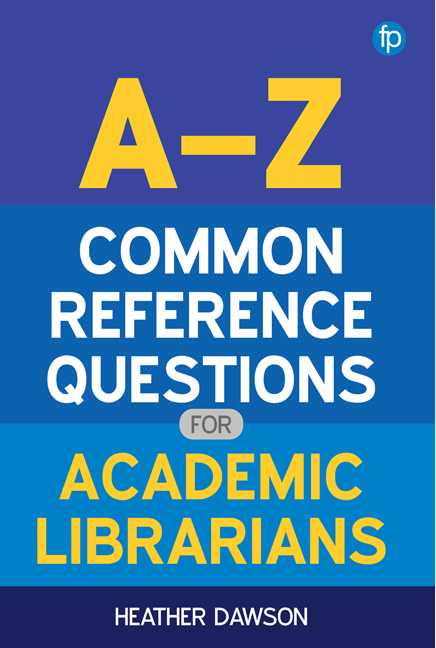History
Published online by Cambridge University Press: 19 March 2020
Summary
Typical questions
• What is a primary source?
• What has been written recently on the Boer War?
Starting points
• History is a vast topic. Try to discover which time period, geographical region or aspect (e.g. economic, social or political) is required.
• Historians need to consult both primary and secondary sources in their research. Primary source materials provide first-hand accounts of historical events. They include artefacts, manuscripts, diaries, maps, photographs, government documents and contemporary newspaper reports. Secondary sources offer synthesis and interpretation of historical events. Examples include textbooks, journal articles and encyclopedias. Students can be confused by this distinction. Particular help is often required in locating primary sources. Key starting points for this are the resources in the Archives, Government and Parliamentary Publications, Maps and Images and Photographs chapters. The Freedom of Information chapter offers advice on requests for the declassification of government papers.
• Growing numbers of primary resources are being made freely available on the internet. However, students should always verify provenance before use. Good examples can be found on the websites of museums, archives and national libraries.
• This section cannot offer detailed guidance on every aspect of history. Instead it concentrates on a number of key starting points that students should explore in more detail. Other relevant chapters are: Economic History; Biographical Information (for researching the lives of famous people); Population and Demography (for census information); International Relations and International Security, which cover historic conflicts.
Recommended resources
Key organisations – UK
Use these websites to trace news, events listings, project updates and reviews of new publications and electronic resources.
Arts and Humanities Research Council [Specialist]
ahrc.ukri.org
Major funding body. Key resource for tracing information on applying for grants and browsing information on recent award holders.
British Association for Local History
www.balh.co.uk
Excellent education section with suggestions for teachers. Non-members can access news and back issues of its journals.
Federation of Family History Societies
www.familyhistoryfederation.com
Designed for members of the public to get information about family history research, listing courses and events.
Historical Association
www.history.org.uk
Seeks to promote history education at school, adult and HE level. Website has sections for teachers and learners with articles, podcasts and advice. Some are restricted to members only. Non-members can get some free access to articles from its key publications including Primary History, Teaching History and The Historian.
- Type
- Chapter
- Information
- A-Z Common Reference Questions for Academic Librarians , pp. 171 - 177Publisher: FacetPrint publication year: 2019



